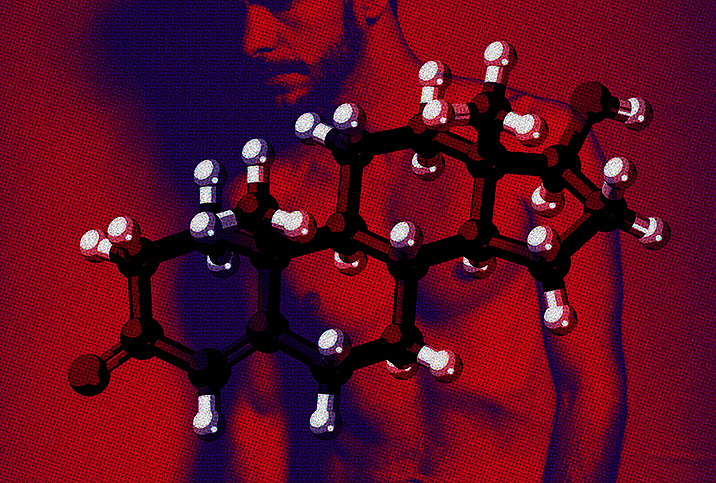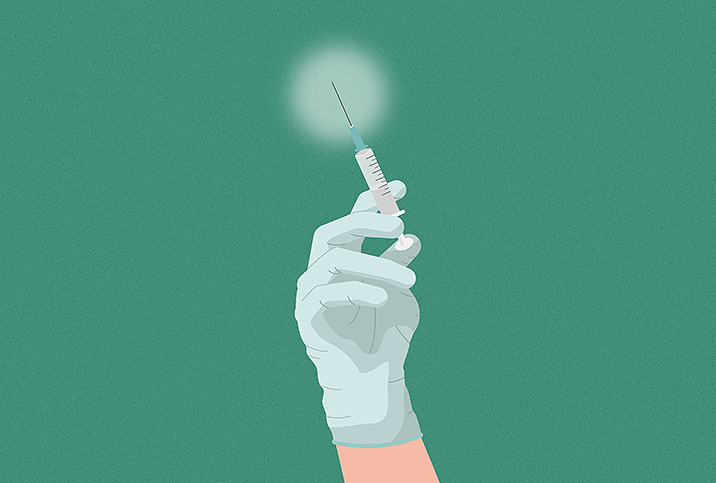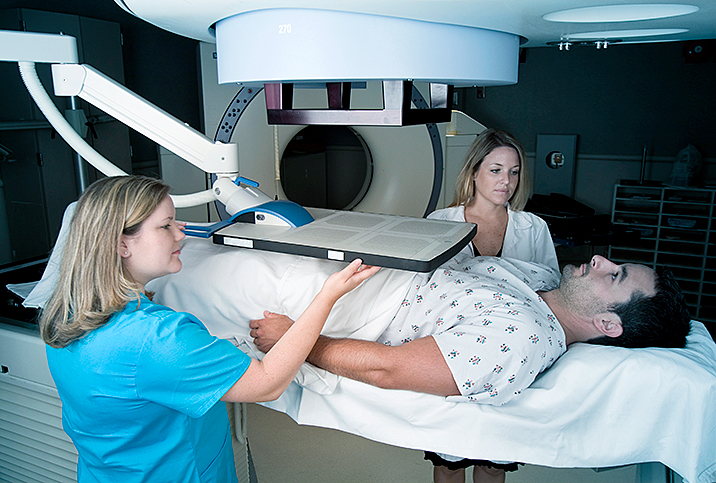Your Libido Might Be a Casualty of Androgen Deprivation Therapy

The fight against prostate cancer has come a long way.
The five-year relative survival rate for prostate cancer is 96.8 percent, according to the National Cancer Institute's SEER data. That means within five years, prostate cancer claims only about three lives for every 100 people who get the disease. The American Cancer Society puts the survival rate at 98 percent.
As recently as 1975, that figure was closer to 31 out of 100 dying within five years—there was a five-year survival rate of 68.8 percent that year.
Still, some men develop prostate cancer that metastasizes or returns after treatment. For them, androgen deprivation therapy (ADT) is often an option. ADT starves the tumor of male hormones, the fuel prostate cancer cells need to grow.
But with ADT, men face all the familiar downsides of low testosterone: decreased energy, weight gain, loss of muscle mass and, perhaps most importantly to some patients, lower sex drive and erectile dysfunction (ED).
Is it possible to receive ADT to fight cancer and still avoid the sexual side effects of low testosterone?
What is ADT?
Sometimes called hormone therapy, androgen deprivation therapy is a treatment that seeks to reduce the levels of testosterone and dihydrotestosterone (DHT) to stop tumors from growing in the prostate gland.
Hormone therapy may be considered in the following cases:
- The cancer has spread too far for radiation or surgery to effectively cure it.
- The cancer remains after surgery or radiation.
- You have higher Gleason scores or other high-risk factors in combination with radiation therapy.
- You'll be starting radiation therapy soon to preemptively shrink the tumor.
"Androgens are like testosterone, so it's shots or other medication to lower a man's testosterone," said Daniel E. Spratt, M.D., the Vincent K. Smith chair in radiation oncology at University Hospitals Seidman Cancer Center in Cleveland. "Lupron, or leuprolide, is the first FDA-approved injection, and that's from the 1980s. At one point, it was one of the most prescribed drugs in the country. For men with metastatic disease, everyone receives it. For localized disease, I'd say that the vast majority of men with high-risk disease will receive it."
All types of prostate cancer treatments can have long-term negative effects on men's sexual functioning, according to a study published by the American Society of Clinical Oncology. ADT appears to be the worst of all of them. The research showed that in as little as three to four months on ADT, men may begin noticing reduced desire for sex, because testosterone can affect libido.
Even worse, it takes nine to 12 months following ADT to even potentially recover baseline blood testosterone levels, and many men never do. Even if their testosterone returns to pretreatment levels, half of those men may never return erectile function to baseline levels, even after stopping ADT.
How does ADT affect sex?
Nuking testosterone production with ADT works against male sexual function in ways other than low testosterone that are important to address.
For instance, shrinkage. Yes, it's real. If your penis isn't regularly getting hard—over several months on ADT, for example—it can shrink.
"When the penis is no longer getting exercise on a regular basis, if someone hasn't had an erection for a year or two years, the penis changes," said Amy Pearlman, M.D., the director of men's health at the Carver College of Medicine at University of Iowa Health Care. "It impacts not only libido; it impacts the nerves and the blood vessels and the elasticity of the erectile tissue. It doesn't stretch as well. So people lose length and girth."
As the tissue atrophies, it can also cause damage to the system of veins that holds the blood in the penis when it gets erect, causing leakage and further exacerbating ED.
What can you do about it?
One bit of good news about androgen deprivation therapy is there's no reason you can't take ED meds or use constriction devices while you're on it. However, without testosterone, it may still be difficult for your penis to get erect enough for penetrative sex.
"It's really hard for a guy to get a good erection if his testosterone level is very low," Pearlman said. "What we see in guys—even taking ADT out of the conversation—if they're taking Viagra or Cialis and they no longer respond, if you check their testosterone and it's low, if you treat it, oftentimes they'll respond better to Viagra and Cialis."
Even if you don't feel like having sex while you're on ADT, you can take some steps to give yourself the best chance of everything returning to working order.
"They could do penile injection therapy or intraurethral medication, but they can just use a vacuum pump on a daily basis and they don't have to take medication or even have sex—it's just for the health of the tissue," Pearlman said. "In order to maintain the health of your tissue, you need to exercise it on a regular basis, just like you would your biceps or triceps. And during ADT, resistance training is really important."
Another important point is that it's not unheard of to go back on testosterone after a cycle of ADT.
"More and more research is coming out to say that guys who have a history of prostate cancer who have been treated can restart their testosterone therapy safely," Pearlman said. "What our guidelines don't provide guidance on is at what point it is safe to do so. For so many of these guys, if they're miserable—and we know that low testosterone is a risk factor for heart disease—so if they're gaining weight, losing muscle mass, they don't feel well and their libido is low, that's not healthy for them, either."
Androgen deprivation therapy is just one common type of a broad array of treatment options for people who have been diagnosed with prostate cancer. Understanding the various risks and rewards and consulting closely with your healthcare team are essential to choosing the right type of treatment for your particular goals.


















